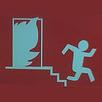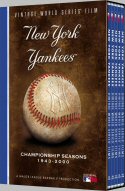|
Larry Mahnken and SG's | ||
|
| Replacement Level Yankees Weblog |

|
|
"Hey, it's free!" | ||
|
|
|
Larry Mahnken and SG's | ||
|
| Replacement Level Yankees Weblog |

|
|
"Hey, it's free!" | ||
|
|
|
Featuring: Larry Mahnken SG sjohnny TVerik Sean McNally Fabian McNally John Brattain This is an awesome FREE site, where you can win money and gift certificates with no skill involved! If you're bored, I HIGHLY recommend checking it out!
 
The New York Yankees Vintage World Series Films DVD Set, available from A&E. Yankees Tickets World Series Tickets MLB All Star Tickets NFL Tickets Purchase your Onlineseats.com is your #1 source for MLB tickets, NY Mets Tickets, Cubs Tickets, Yankees Tickets, Red Sox Tickets, Giants Tickets, Astros Tickets, Angels Tickets, Phillies Tickets.
Buy all your MLB Tickets,
Laser Keyboard Brazil Flowers TickCo.com for premium New York Yankees Tickets Boston Red Sox Tickets Chicago white Sox Tickets A's Tickets Angels Tickets New York Mets Tickets St Louis Cardinals Tickets Cubs Tickets Dodgers Tickets "I'm not a pessimist, I'm an optimist. Things are really worse than I say they are." - Steve South

January 2001 April 2003 May 2003 June 2003 July 2003 August 2003 September 2003 October 2003 November 2003 December 2003 January 2004 February 2004 March 2004 April 2004 May 2004 June 2004 July 2004 August 2004 September 2004 October 2004 November 2004 December 2004 January 2005 February 2005 March 2005 April 2005 May 2005 June 2005 July 2005 August 2005 September 2005 October 2005 November 2005 December 2005 January 2006 February 2006 March 2006 April 2006 May 2006 June 2006 July 2006 August 2006 September 2006 October 2006 November 2006 December 2006 January 2007 February 2007 March 2007 April 2007 May 2007 LINKS Yankees Sites and Columnists Nomaas.org General Baseball Sites & Columnists At Home Plate Rotoauthority.com The Book Blog - Playing the Percentages in Baseball(Tango, MGL, Dolphin) Yankees Blogs Almost Perfect Baby Bombers Baseball Mania Bronx Banter Bugs and Cranks Canyon of Heroes Dugout News Eephus Pitch Here Comes Number 27 High and Tight Lohud Yankees Blog No Sense Worrying Pinstripe Potentials River Ave. Blues Soft Hands The Stat Boy of the Empire Was Watching Yankees Chick Yankees Fans in Foreign Lands Yanks Blog Other Team Blogs Anaheim Angels All the Way Bucco Blog San Francisco Giants Blog Viva El Birdos Look what people have to say about Larry Mahnken's commentary! "Larry, can you be any more of a Yankee apologist?.... Just look past your Yankee myopia and try some objectivity." "Mr. Mahnken is enlightened."
"Wow, Larry. You've produced 25% of the comments on this thread and
said nothing meaningful. That's impressive, even for you."
"After reading all your postings and daily weblog...I believe you have truly become the Phil Pepe of this generation. Now this is not necessarily a good thing."
"you blog sucks, it reeds as it was written by the queer son of mike lupica and roids clemens. i could write a better column by letting a monkey fuk a typewriter. i dont need no 181 million dollar team to write a blog fukkk the spankeees"
"i think his followers have a different sexual preference than most men"
"Boring and predictable."
"Are you the biggest idiot ever?"
"I'm not qualified to write for online media, let alone mainstream
media."
This site is best viewed with a monitor.
|
Disclaimer: If you think this is the official website of the New York Yankees, you're an idiot. Go away. September 30, 2003
The Games That Count by Larry Mahnken
The Oakland A's won the American League West for the second straight season, and the third time in four years, locking up their fourth straight playoff appearance. But three years in a row, they've been knocked out in the first round, in five games. For some reason, people thinks this negates their dominance of baseball's best division, and somehow reflects poorly on A's General Manager Billy Beane.
September 29, 2003
Forbes.com: Best Sports Blogs by Larry Mahnken
This is a fantastic honor, although I don't consider myself to be the best baseball blog, let alone the fifth best sports blog. For all of those who have been directed here by this, I highly recommend that you check out these great baseball blogs:
September 28, 2003
by Larry Mahnken
I can't help but notice the numbers under Aaron Boone's name are going up pretty much daily, and starting to approach respectability. It'll take a couple of homers for those numbers to get there, and I highly doubt that's going to happen.
September 27, 2003
by Larry Mahnken
Here's something that I doubt any of you know about me (and why should you?). I don't have a car. That's right, 26-year old Larry doesn't own a vehicle, so he has to rely on public transportation, a bicycle, or his feets. Sometimes life doesn't work out the way you expected it to (and sometimes that's good, and sometimes it's bad), and for me, the big thing is that I don't have a car. Oh well.
September 25, 2003
by Larry Mahnken
The only goal left in the regular season aside from Jeter's batting title run and Posada's MVP run (and shot for 30 HRs and 100 RBI), which really aren't important at all, is Home Field Advantage. As I said earlier, that's not really that important, either (one game that they might not play in a series they might not get to against a team they might not play there), and accordingly, Joe Torre doesn't seem to be putting any focus on it. He's setting his playoff rotation now, and will give some of his starters days off this weekend.
September 24, 2003
by Larry Mahnken
Hooray for the Wild Card! The Yankees finally finished off the Red Sox last night behind Jose Contreras' eight shutout innings. Of course, 162 games isn't enough to determine who the best team in the division is, you need a seven game series for that. Really, how unfair was the old system, where teams got left out of the playoffs while the team that finished ahead of them in the standings got to go? There is still work to be done, of course, and someday we will have realized the ultimate in fairness, where every team gets into the playoffs, regardless of record. And they play a one-game playoff instead of a seven game playoff, to maximize the randomness. And they play on a neutral site. And they play football instead of baseball.
September 23, 2003
by Larry Mahnken
The Red Sox won, the Yankees lost, and Oakland didn't play, so all the celebrations get put off another day. Jeff Weaver's probably killed himself by now, but this loss didn't mean a damn thing, clinching the division is just a formality.
September 22, 2003
by Larry Mahnken
Yesterday, I wrote about the Yankees' starters at the corners: Aaron Boone, Jason Giambi and Nick Johnson. In those three players the Yankees have two elite hitters and one painfully average one. However, on the Yankees, having an average player at third base is more than acceptable, because they've been able to count on offensive support elsewhere.
September 21, 2003
by Larry Mahnken
Okay, the magic number to get into the playoffs is one--they've clinched a tie with Seattle. The magic number for the division is three--but assuming that Seattle is going to lose at least one more game this season, it's really two, because the Yankees have the division tiebreaker. Magic number for Home Field Advantage is four.
September 19, 2003
by Larry Mahnken
I got an email from my Dad yesterday:
September 17, 2003
by Larry Mahnken
At this point in the season, it becomes a little less interesting. You know the Yankees are going to make the postseason, and that they're probably going to win the division. The only thing that could go wrong is for them to collapse down the stretch and get passed by the Red Sox and Mariners, and considering the competition, that's not going to happen. But it's not October yet, and so it's almost like the games don't count right now. You'll turn on the game, but the wins aren't as satisfying as they were a couple of weeks ago, and the losses are a pain, but you forget about them almost immediately. It's not like they make that big a difference either way. It feels almost like Spring Training.
September 16, 2003
by Larry Mahnken
Way back in April, when I started this blog, I wrote about Alfonso Soriano. Okay, I've been doing a lot of that since I started writing this blog, as well as writing about Derek Jeter's defense, the Bullpen of Horrors, Joe Torre, Aaron Boone, Raul Mondesi, Juan Acevedo and violence against inanimate objects.
September 13, 2003
by Larry Mahnken
What a difference a week makes. A week ago today, the Yankees were coming off of a second straight humiliating defeat at the hands of the surging Red Sox, their lead was down to a measly 1½ games, and it seemed that everything was going wrong. David Wells wasn't merely struggling, he was pitching miserably, Jason Giambi wasn't just slumping, he was an out machine. Bernie Williams had struggled to find his power since returning from knee surgery in May, the bullpen was pouring gas on whatever fire they came near. Aaron Boone was failing to merely suck, he was exploring whole new levels of suckiness, perhaps trying to test the theory that baseball value is circular, and that if you suck enough, you will eventually pass the lowest levels of suck and enter the elite levels of greatness. It's an interesting theory, but one best tested on a team that can afford the risks inherent in the "Suck a Lot" strategy.
| ||||||||||||||||||||||||||||||||||||||||||||||||||||